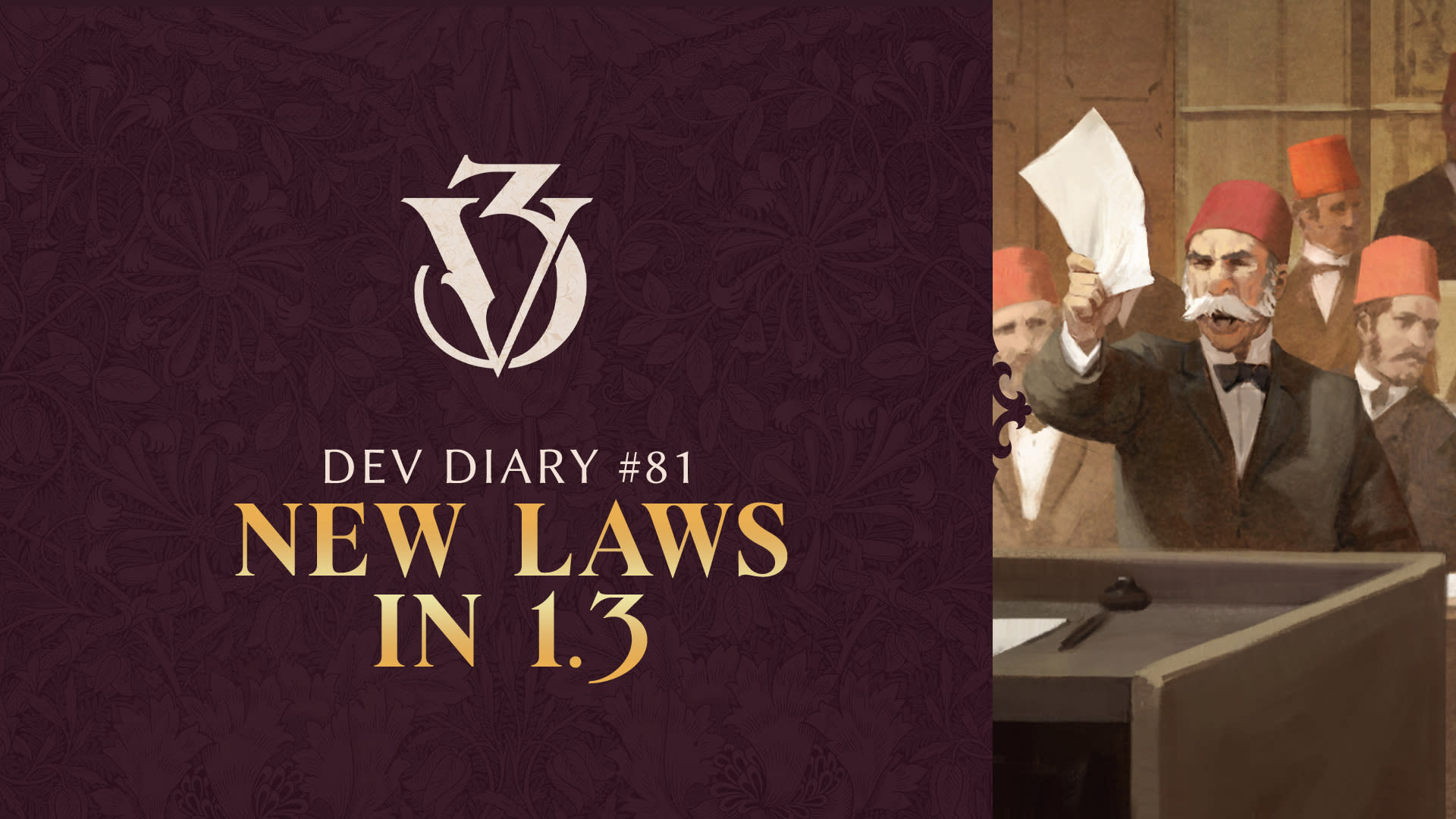
Hello. This is Victoria, also known as Pacifica, and today we will be going over the new laws added in 1.3. By and large, these laws exist to grant an experience that allows for more “modern” forms of states, to represent the changing ideologies of the late nineteenth and early twentieth centuries, and to represent some of the most contentious and important issues of the period - land reform, anti-clericalism, and more modernised systems of governance.
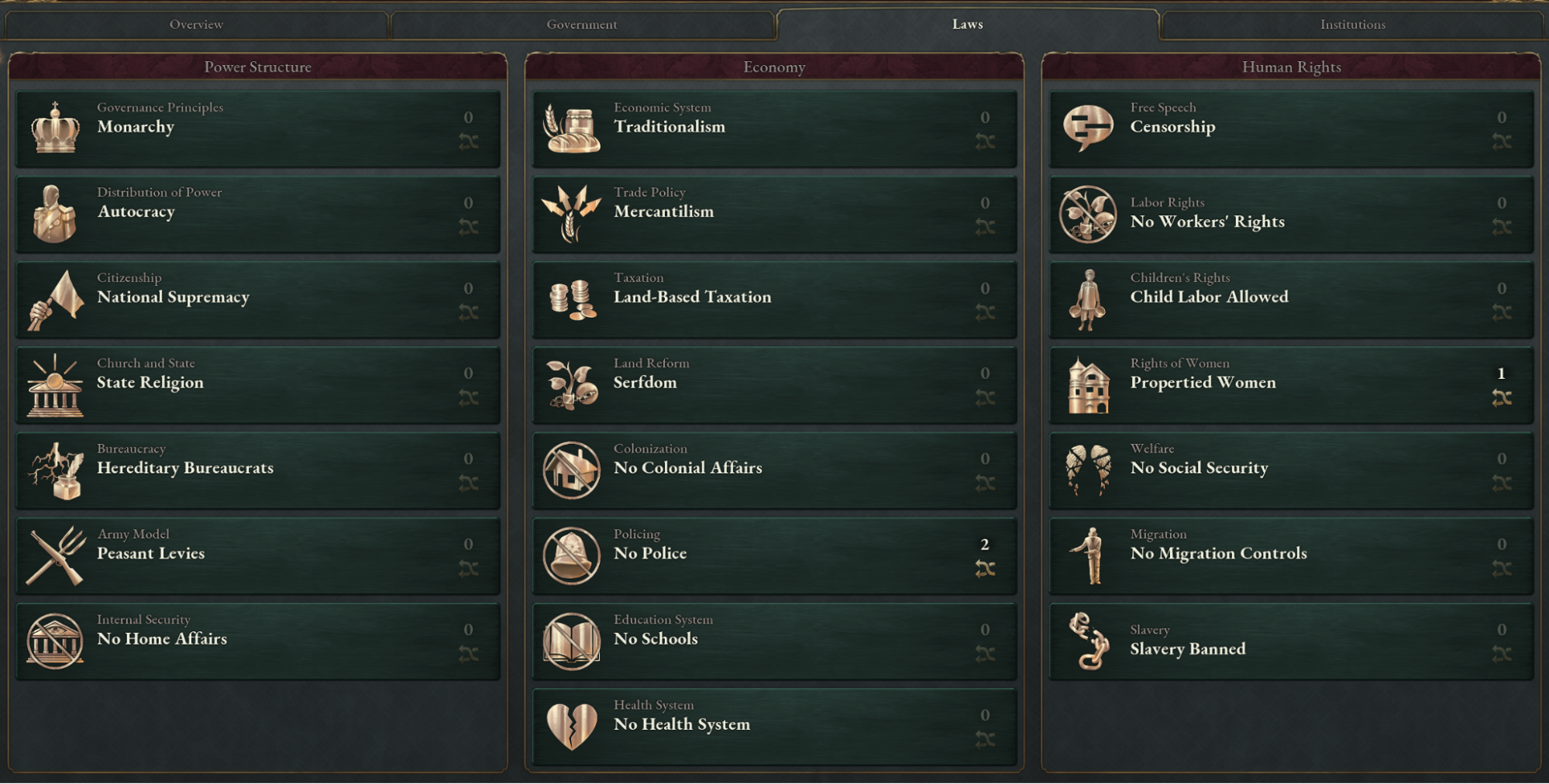
Land Reform
One of the most important political issues within modernising nations was the matter of land reform. Whilst most European nations, by 1836, had abolished formal serfdom, they often still had tenant farming systems which gave landlords an immense amount of power over the peasantry. Within the period of Victoria 3, many political movements throughout developing nations explicitly sought to handle the issue of landlord power even after serfdom was formally abolished.
Under the new Land Reform law category, production methods pertaining to the rural economy have been decoupled from the Economic System law, instead being folded into this category. The ownership production methods available for farms and plantations will be determined through the player’s Land Reform laws.
Previously, the distinction between the system of serfdom and non-serfdom was extremely non-granular. Once serfdom was abolished, the player could safely ignore the issue of land reform for the entirety of the game, only touching this law category again if they wished to implement workers’ protections. With the new Land Reform law category, the issue of who owns land has been separated from the rights of workers, allowing for increased choice within both categories, and options for interesting political setups, such as a highly laissez-faire republic with a modern commercialised agriculture law and a total lack of workers’ rights, or a paternalistic monarchy that maintains serfdom, but considers protections for labourers to be an innate component of its social contract.
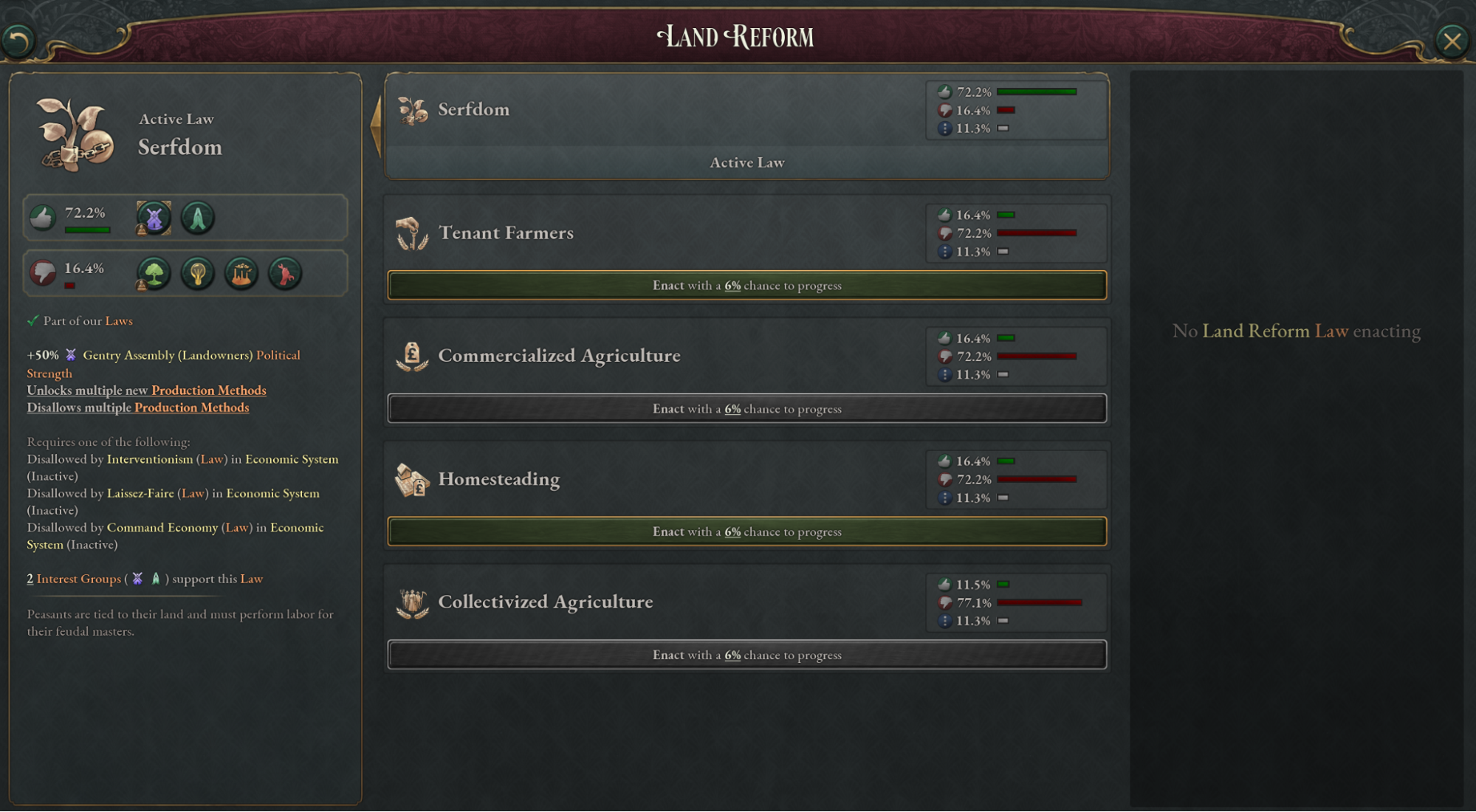
The new Land Reform laws represent a variety of land ownership schema, all of which play an important role in affecting the political strength of groups in your nation. Whilst Serfdom and Tenant Farmers greatly benefit the traditional landowning elites, the new Homesteading law both provides a base benefit to the political strength of the Rural Folk, and unlocks the new Homesteading production method, which cuts the proportion of Aristocrats in farms, whilst increasing the amount of Farmer jobs.
Pictured: A wheat farm in Russia with Serfdom active, versus a wheat farm in the USA with Homesteading active. The USA’s starting Homesteading law empowers the Rural Folk in the North, whilst the Southern plantations remain dominated by the Landowners.
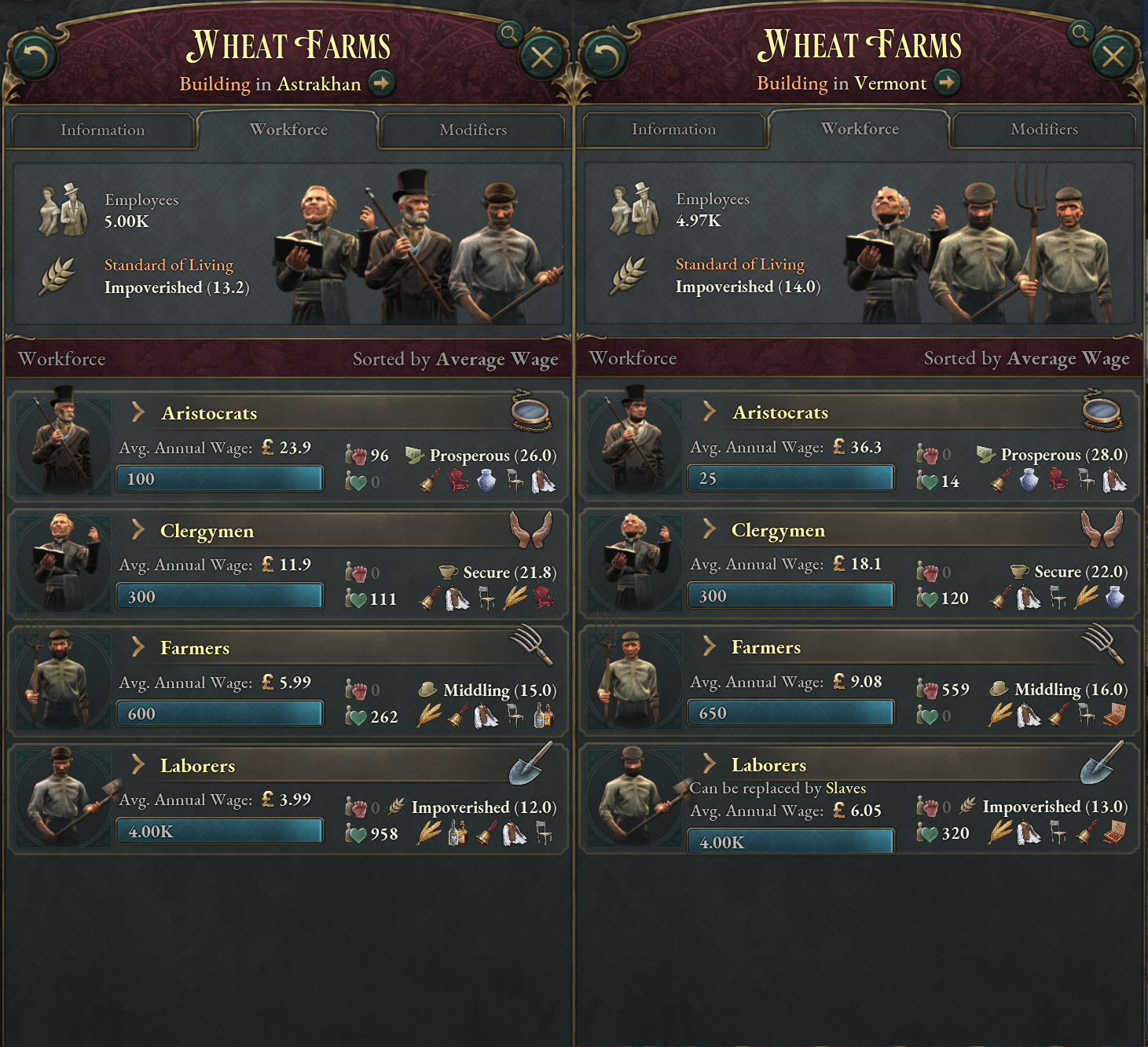
Commercialised and Collectivised Agriculture, respectively, represent more “modern” systems of industrial agriculture, with commercialised agriculture treating land as private property and farming as a business like any other, unlocking the Publicly Traded production method. Collectivised agriculture, on the other hand, organises the land into plots worked by agricultural collectives. These collectives can either be owned by the workers themselves, or owned directly by the state, unlocking both the Workers’ Cooperative and Government Run production methods.
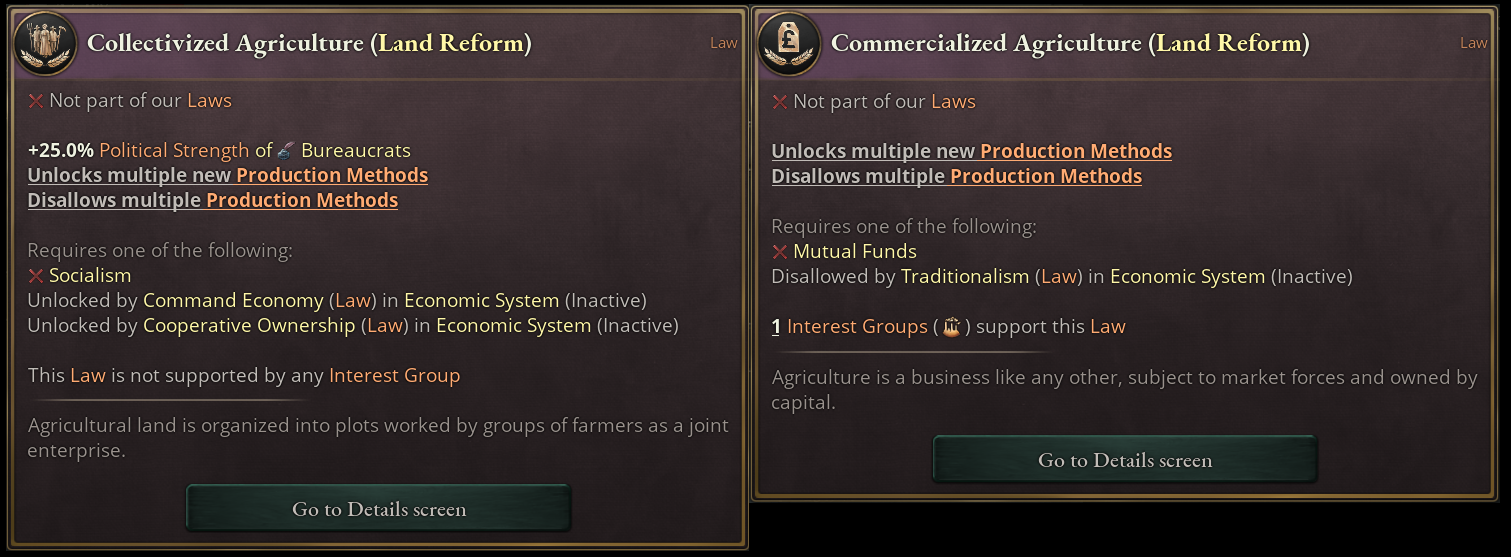
As laws that greatly affect the balance of power within nations, land reform is prone to sparking very contentious debate amongst the populace, as well as fierce resistance from those that have interests in the current system - but the opportunity granted to emerging classes by the prospect of land reform will serve as a boon to the player’s efforts to enact them.
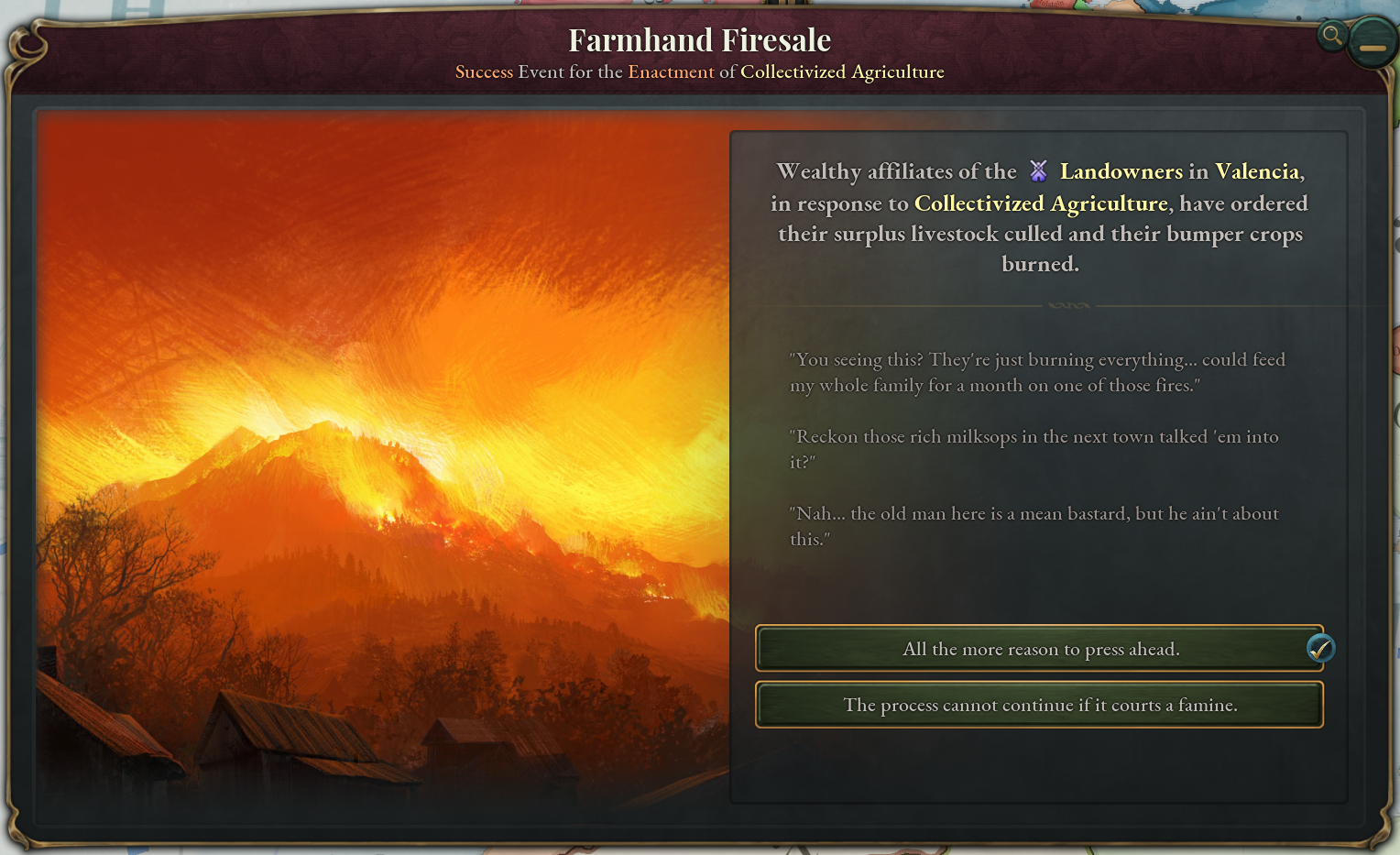

State Atheism
Many states within the time frame of Victoria 3 had politics that were dominated by differing attitudes towards religion. Nations such as Mexico, the Spanish Republic, and the socialist states of the early 20th century all practised strong anti-clerical politics, seeking to minimise the political influence of traditional religious institutions within society. These anti-religious policies will be modeled in 1.3 with the new State Atheism law, and with it, the new Atheist “religion”.
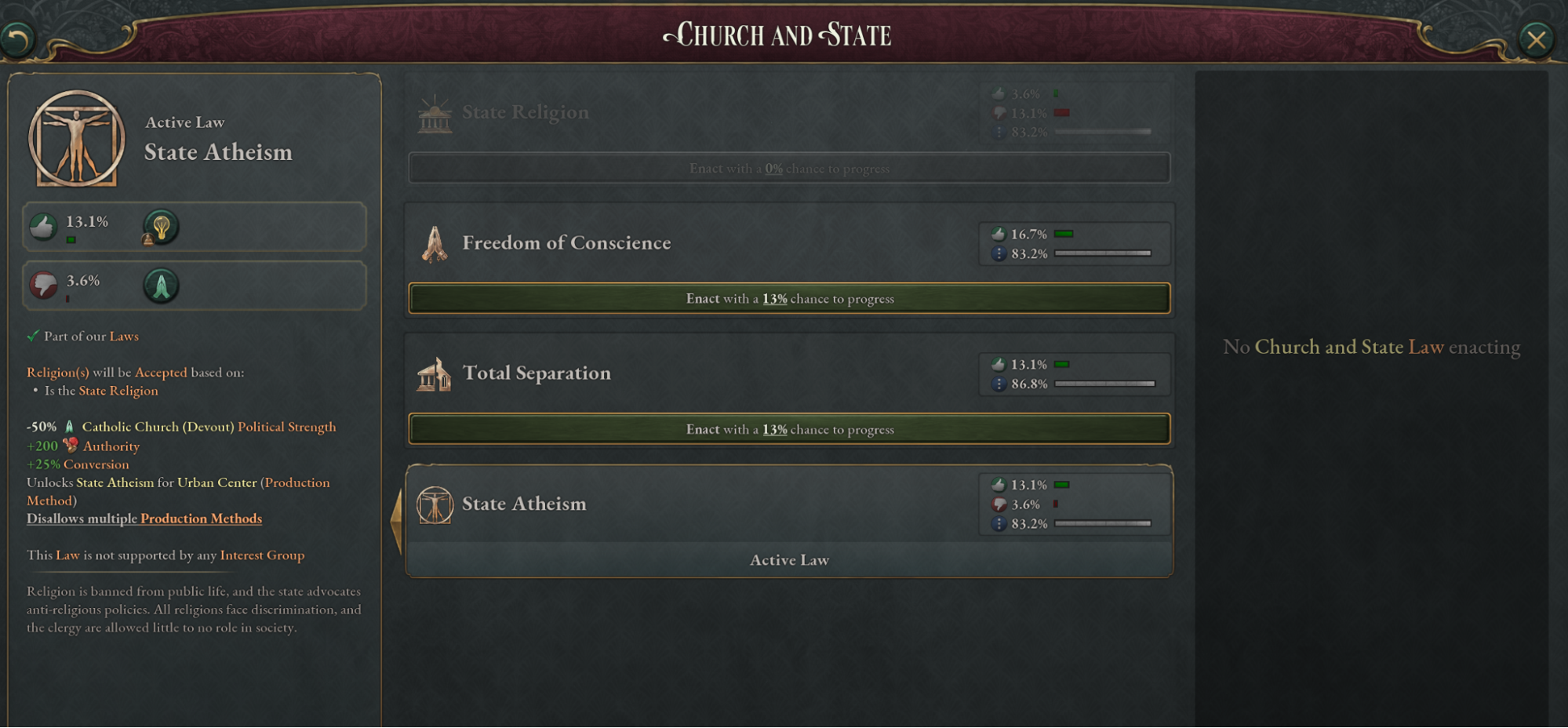
State Atheism is the ultimate means to reduce the power of the Devout within a nation, banning religion from public life and making all religions discriminated against. Nations with State Atheism will gain a new Atheist state religion to replace their previous one, and enactment will grant a small group of Atheist pops in your nation.
Pictured: Whilst Mexico’s policy may be State Atheism, Catholics still make up a supermajority of the nation - it has a long way to go to truly eradicate religion from public life.
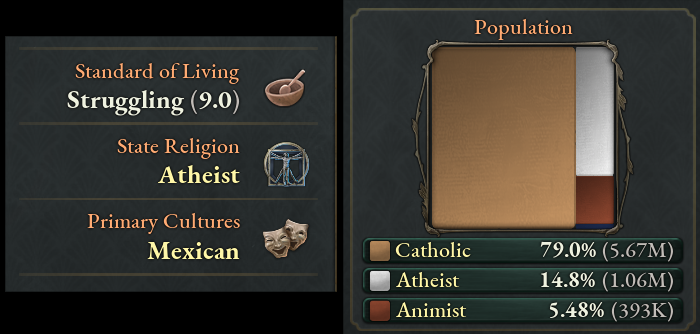
Whilst this is an immensely effective way of reducing the power of religious institutions within the state, State Atheism will create a massive group of discriminated pops, which will increase turmoil through the nation. With this law, it will be ever more important to both focus on keeping standard of living high, and prioritising national values to quash the remnants of religion within your country.
State Atheism will generally be backed by Nihilists, Communists, and other similar ideologies. The process of enacting State Atheism will ignite conflicts between secular and religious society - but it will also open new opportunities for social experimentation, as traditional institutions are rendered marginalised.

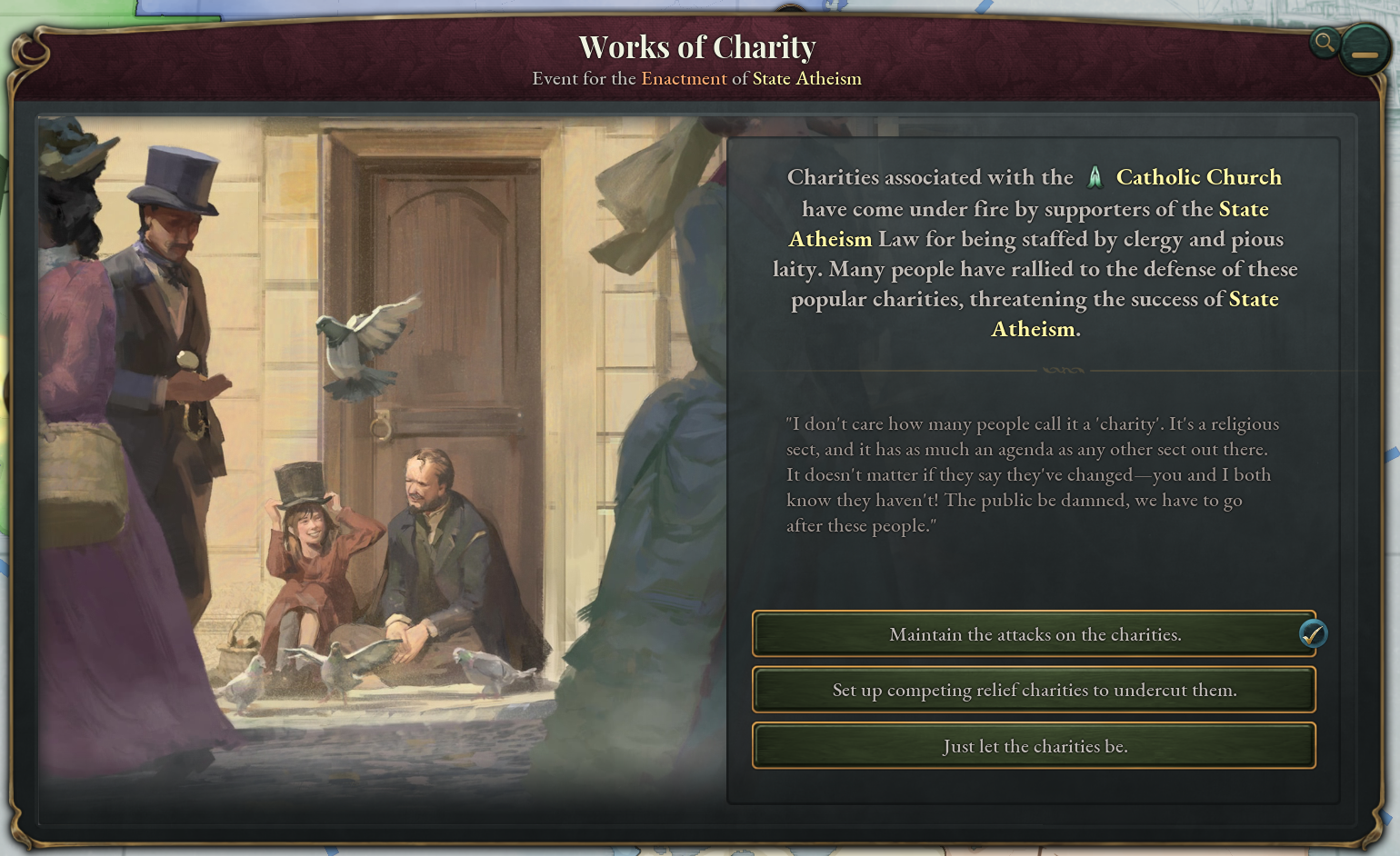
Technocracy and Single-Party States
The final two laws added in 1.3 are the Technocracy and Single-Party State laws, both representing more modern distributions of power that were either implemented or theorised about during the tail end of our time period. Both of these laws grant significant Authority, with Single-Party State granting the highest flat bonus to Authority in the game.
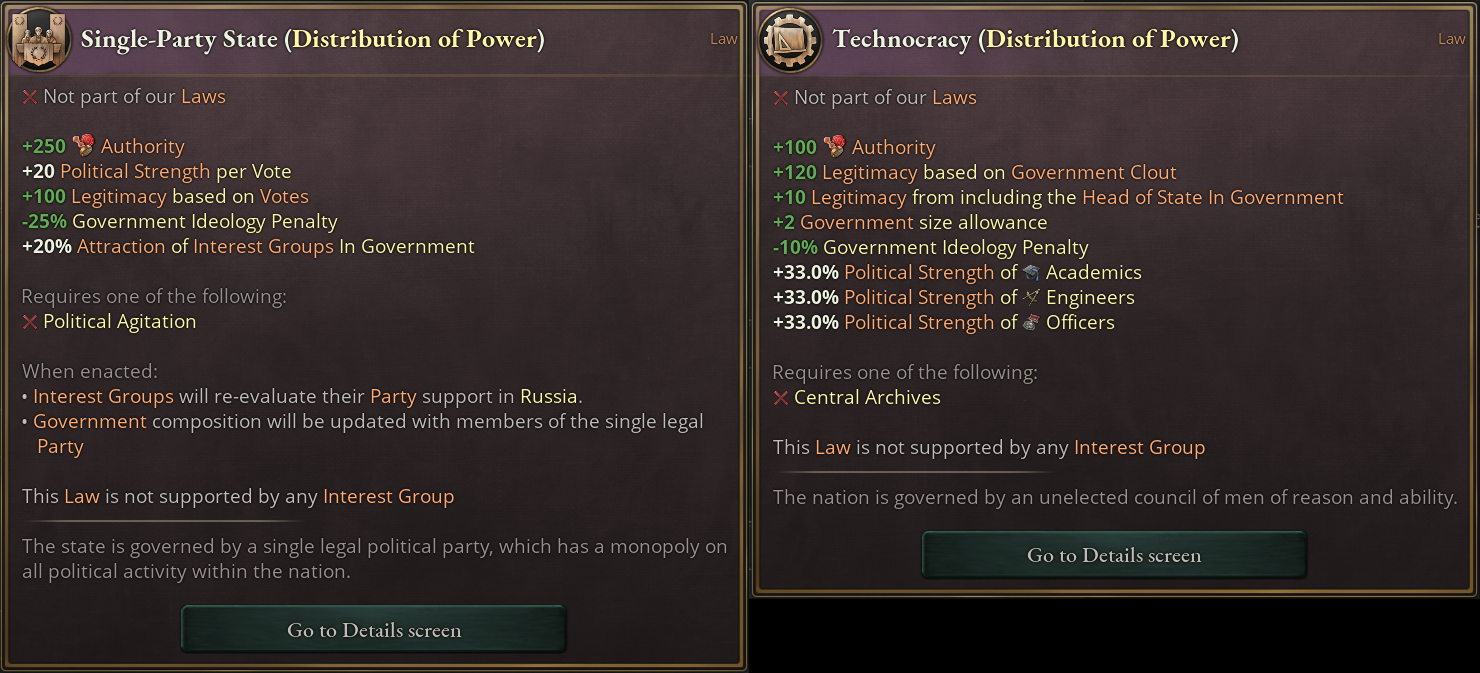
The new Single-Party State law is intended as a late-game replacement to the Autocracy and Oligarchy laws, designed to fit into the era of mass politics and the party-state. Once Single-Party State is enacted, either the ruler’s IG’s political party will become the sole political party in the nation, or a new political party involving the ruler’s IG will form. Elections will be held every four years as normal, with the single legal party always getting 100% of the vote.
Pictured: The modern face of the Empire of Japan, ruled by the firm hand of the Taisei Yokusankai.
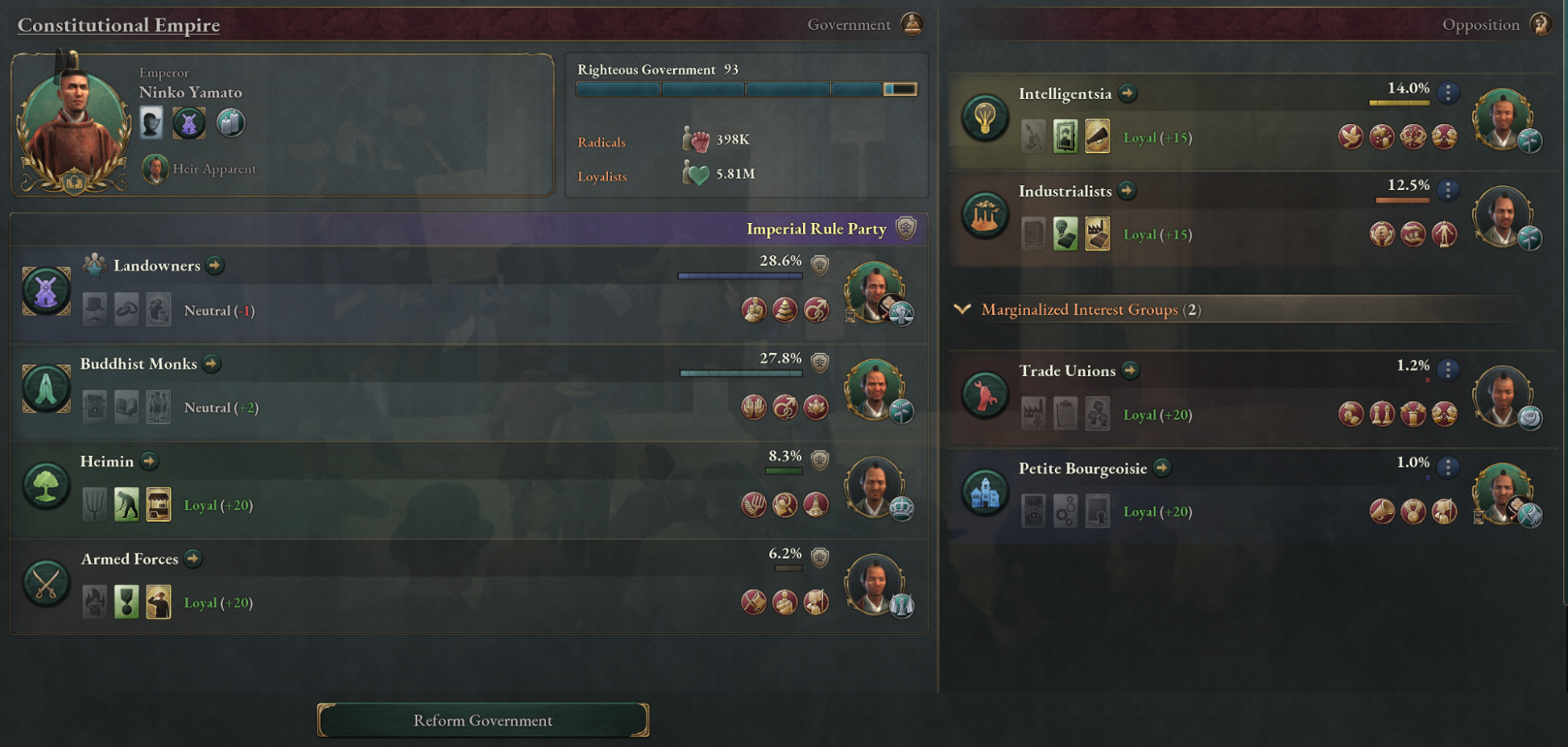
Under a monarchial single party state, the head of state will be hereditary as normal, but under another system, whenever the head of state dies or otherwise changes, a new leader will be chosen from the interest groups within the party. A single-party state does permit including non-party interest groups - but they will come at a substantial hit to legitimacy.
Enacting a single-party state will enrage those interest groups not contained within the party - but it will allow a unique political situation where both more “authoritarian” laws like Command Economy and Collectivised Agriculture, and more “democratic” laws such as Women’s Suffrage and Elected Bureaucrats are available.
Pictured: An enactment event that can arise, if the idea of a single-party state is already popular in your country… and one that can arise if the people are not so thrilled about it.
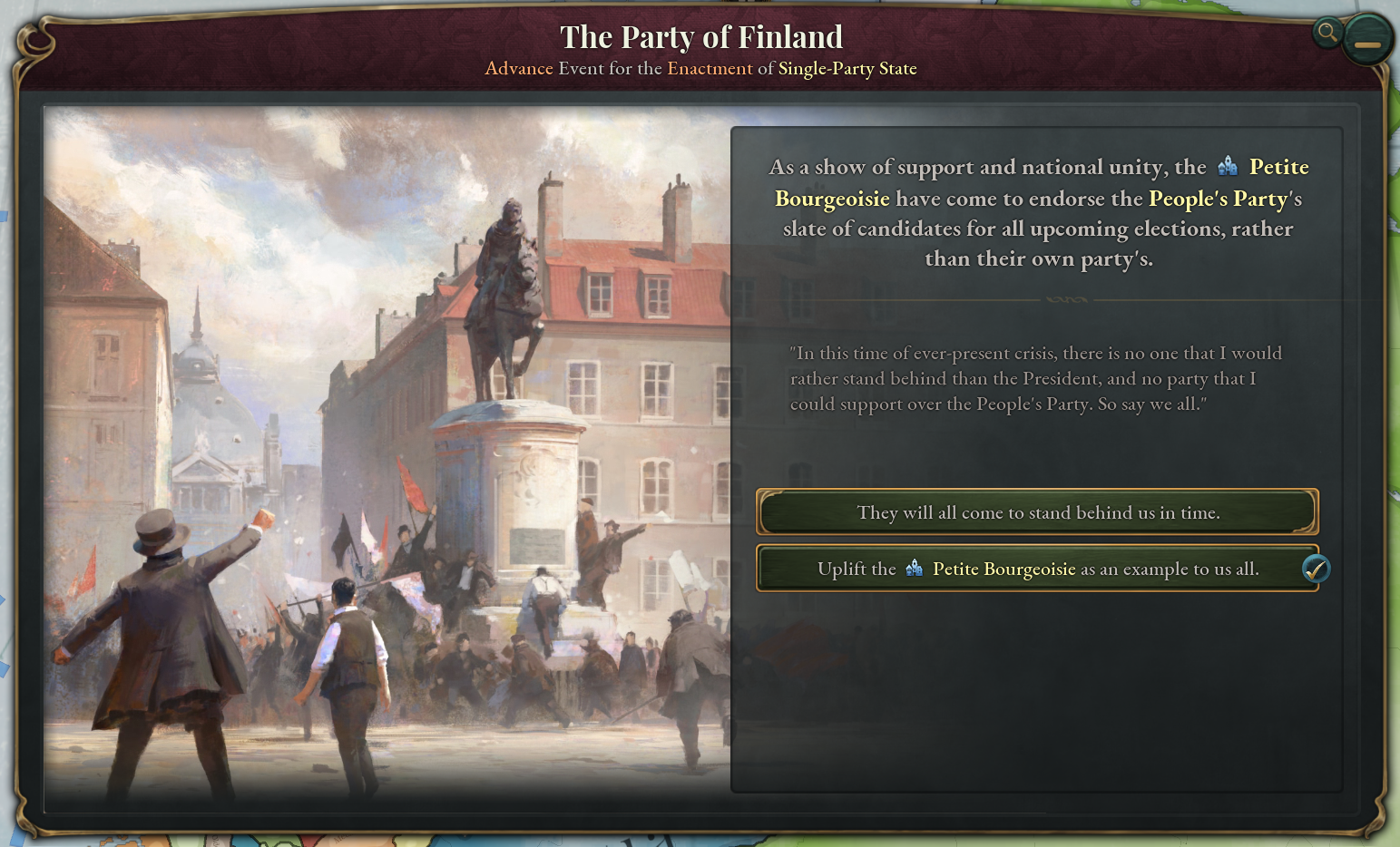
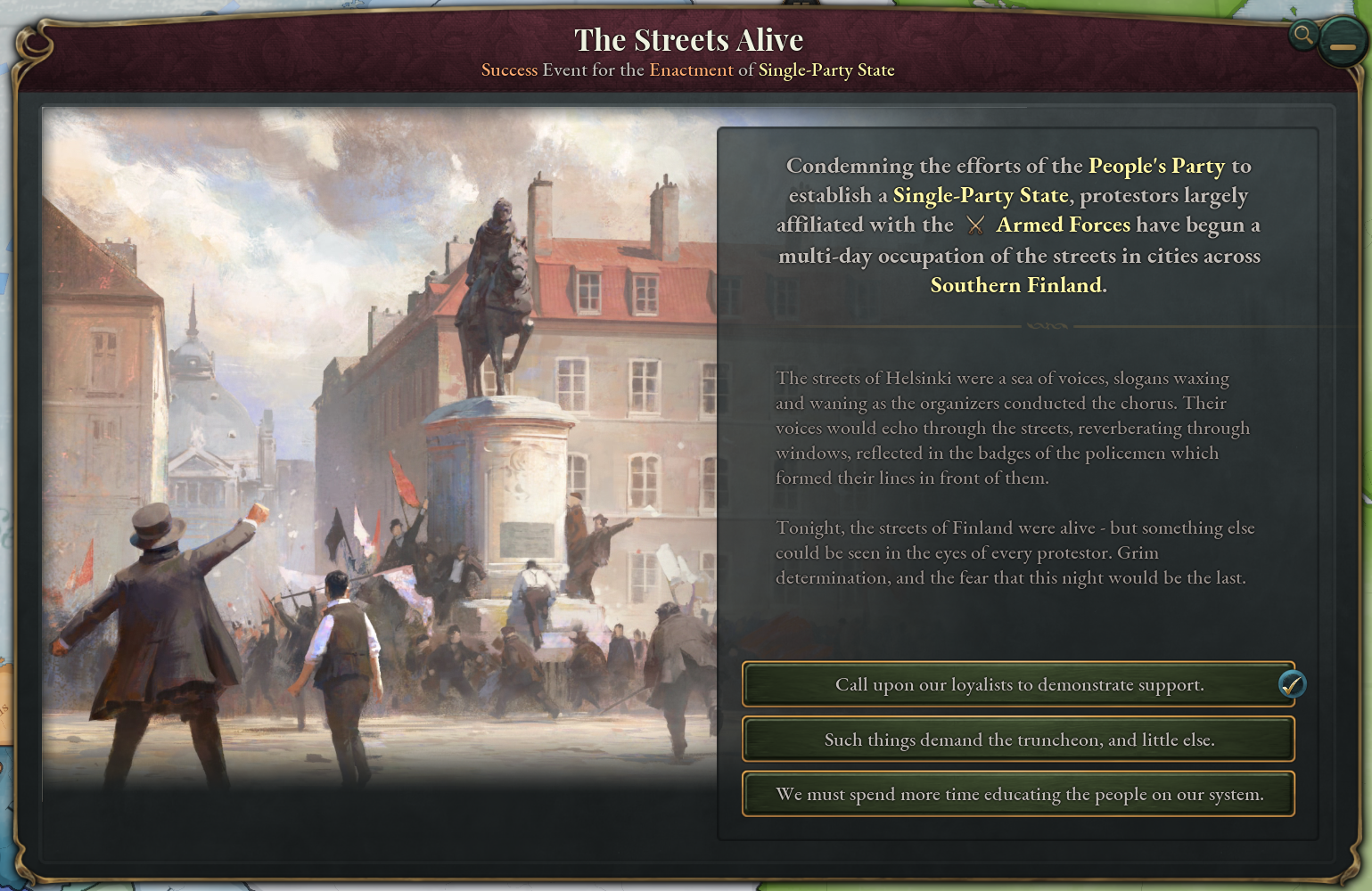
Pictured: A closer look at the Regime. I love the Regime.
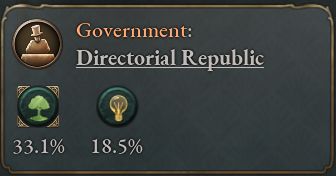
Meanwhile, a Technocracy represents rule by the trained and educated, in accordance with the theories of figures such as Henri de Saint-Simon and Howard Scott. The tendencies that technocracy draws from are myriad, but all desire a state primarily ruled by technical experts. A technocratic state will tend to be supported more by the Intelligentsia and Industrialists, and provides benefits to the political strength of the educated class, from academics to officers. Technocracies will dispense with the inefficient and unenlightened notion of “democracy” altogether, removing political parties, cancelling elections, and ruling in a fashion similar to Autocracies, Anarchies, and Oligarchies.
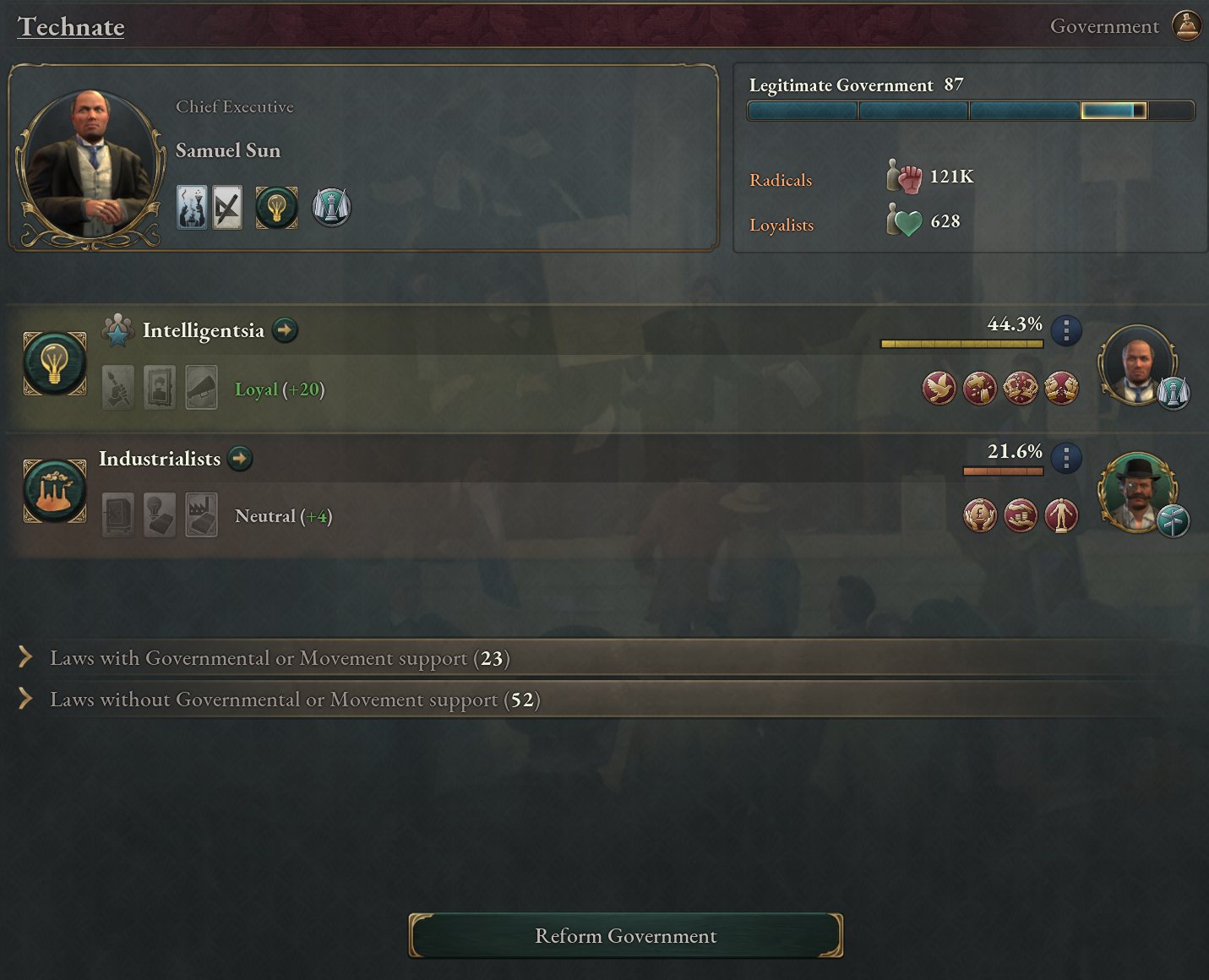
Technocracy can be combined with every set of governance principles in the game [although such combinations may be quite unstable], meaning that both the Platonic ideal of enlightened governance, and the grand dreams of true Vperedist patriots can be realised under this law.

A Technocracy will be greatly beneficial for those that wish to enshrine the rule of the Industrialists and Intelligentsia without worrying about elections - and it, as well, permits the Command Economy law, allowing for a highly centralised, streamlined, and optimised economy under the auspices of stone-faced men in stately grey suits.
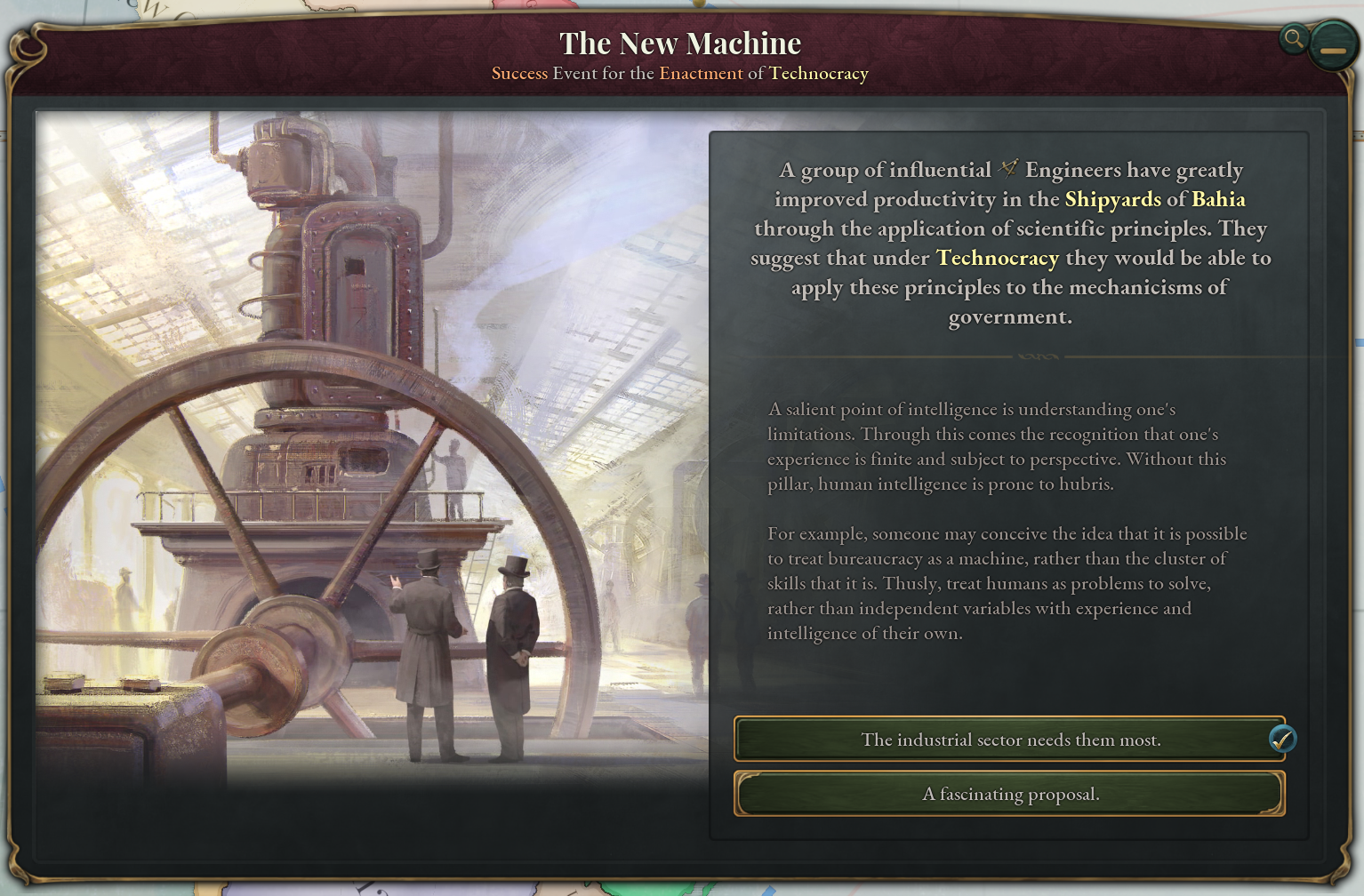
Industry Banned
As the final law we will be visiting, we have precisely the opposite of Technocracy, and one of the most drastic changes in playstyle in Victoria 3 - Industry Banned.
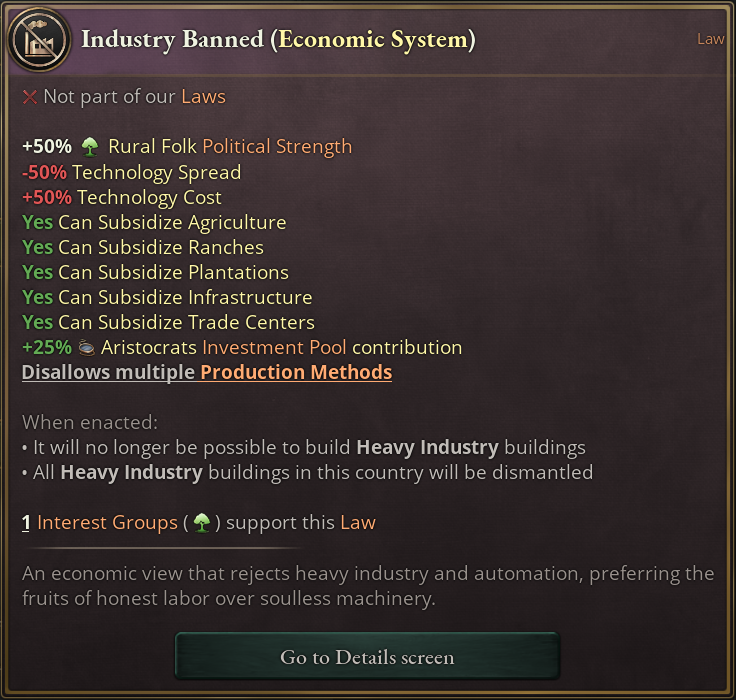
The Industry Banned law represents the most radical elements of opposition to the industrialisation of the Victorian Era. Under this law, all heavy industry in your nation - steel mills, motor industries, chemical plants, and more - will be destroyed, and cannot be replaced until the law is replaced. Furthermore, this law forbids all automation technologies for the industries that remain, mandating the economy remain both small-scale and labour intensive. Technology spread and research speed will be sharply reduced, allowing your nation to remain in a pristine pastoral state, unblemished by things such as smog, labour-saving technology, or modern medicine.
Pictured: The machines may threaten to overthrow us, but there is one thing they lack - the unbreakable and universal concordat of Humanity.
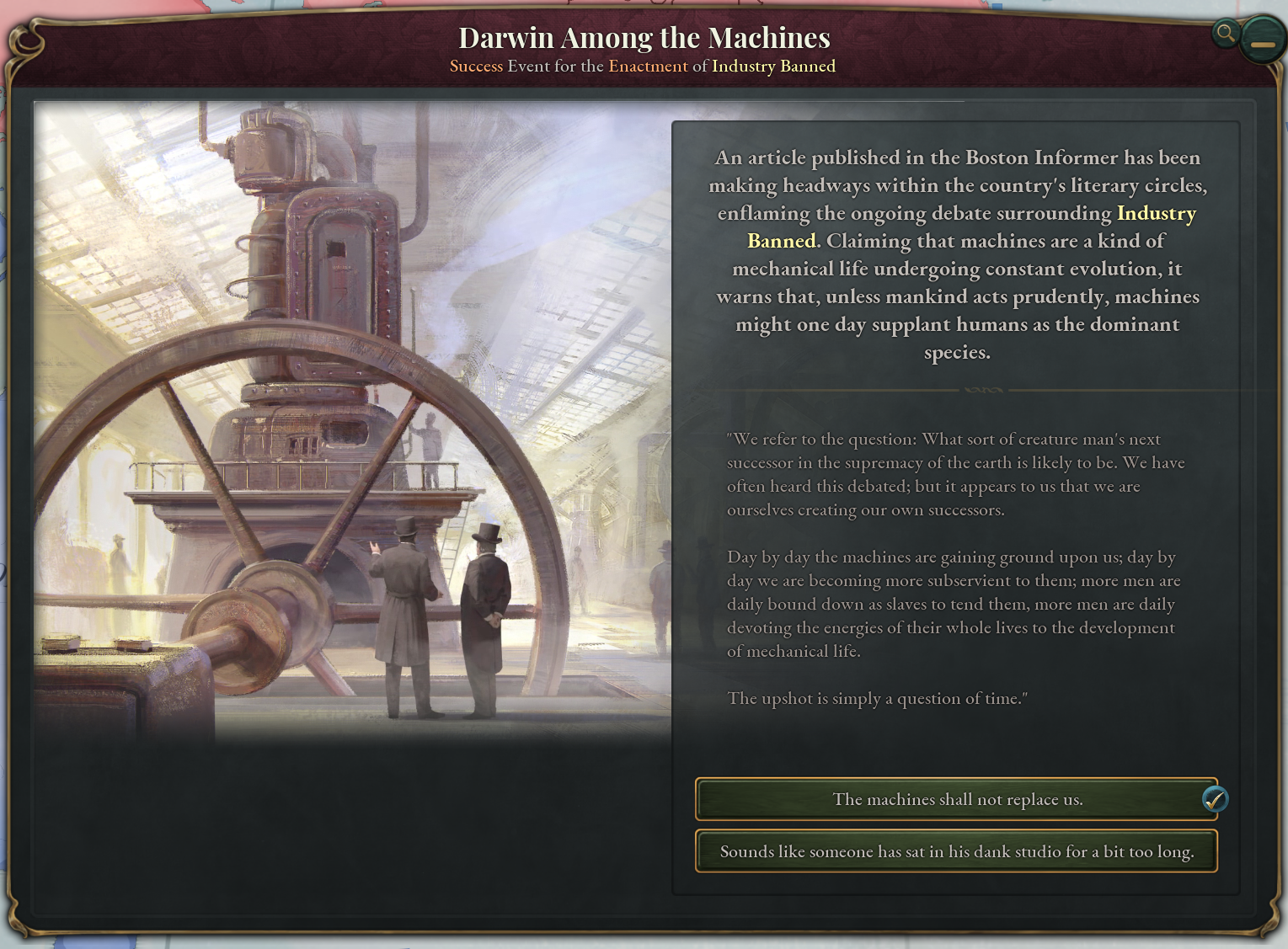
Of course, passing this law will be immensely contentious. Any group that has an opinion on the economic system will usually have a low opinion of abolishing the means of production entirely. There are, of course, some proponents of this law that may arise, however - and, under a sufficiently cruel and alienating system, some otherwise reasonable people may see putting an end to industry itself as desirable to the status quo.
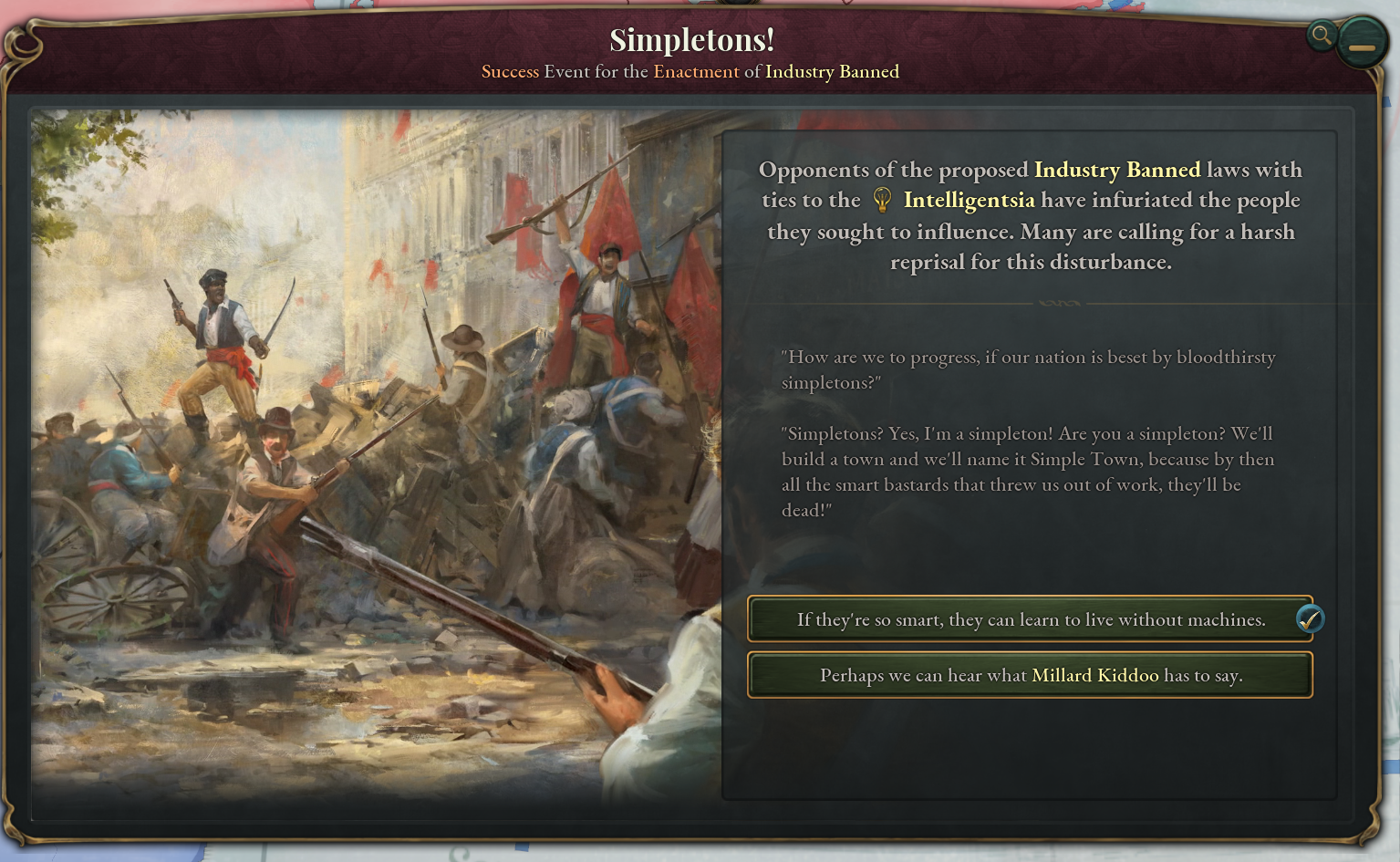
Industry Banned will enormously empower the Rural Folk, and through disabling heavy industry, will also harm the influence of the Industrialists, and boost the Landowners. By combining Homesteading and Industry Banned, one can acquire a +75% bonus to the clout of the Rural Folk - creating the rural, idyllic realm within which power lies primarily with smallholding settlers.
As you can see, we are putting significant effort into making both internal politics and ideological variation more interesting and flavourful in 1.3, as well as creating additional laws for both more exotic late game situations and critically important political issues that defined the time.
Also, revolutions now always adopt the most desired governance principles of their most powerful IG. You won’t be seeing any more radical or communist revolutions with monarchs at their heads.
Pictured: One example of a revolutionary government against a monarchy, composed mostly of people who are ambivalent on the question of monarchism versus republicanism.
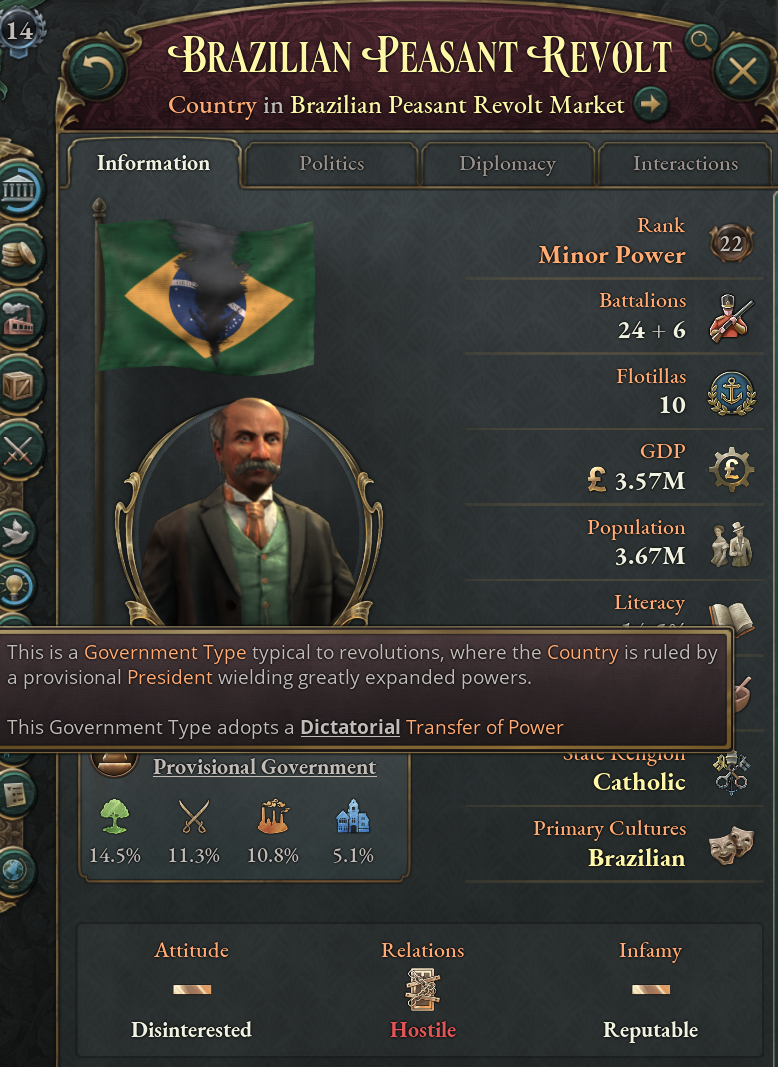
That is all, and we will see you next week.
